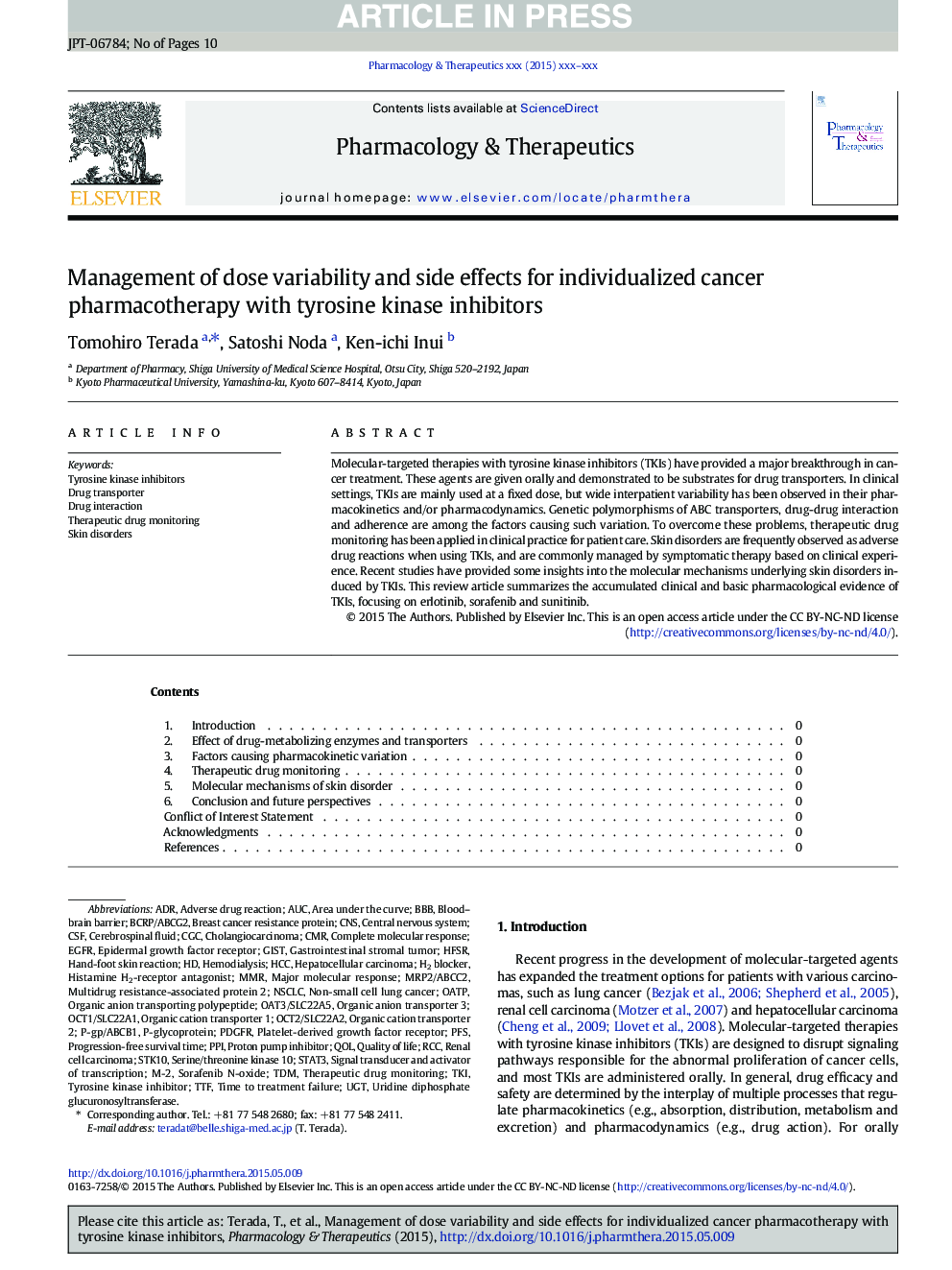| Article ID | Journal | Published Year | Pages | File Type |
|---|---|---|---|---|
| 5844119 | Pharmacology & Therapeutics | 2015 | 10 Pages |
Abstract
Molecular-targeted therapies with tyrosine kinase inhibitors (TKIs) have provided a major breakthrough in cancer treatment. These agents are given orally and demonstrated to be substrates for drug transporters. In clinical settings, TKIs are mainly used at a fixed dose, but wide interpatient variability has been observed in their pharmacokinetics and/or pharmacodynamics. Genetic polymorphisms of ABC transporters, drug-drug interaction and adherence are among the factors causing such variation. To overcome these problems, therapeutic drug monitoring has been applied in clinical practice for patient care. Skin disorders are frequently observed as adverse drug reactions when using TKIs, and are commonly managed by symptomatic therapy based on clinical experience. Recent studies have provided some insights into the molecular mechanisms underlying skin disorders induced by TKIs. This review article summarizes the accumulated clinical and basic pharmacological evidence of TKIs, focusing on erlotinib, sorafenib and sunitinib.
Keywords
EGFRBCRP/ABCG2Complete molecular responseH2 blockerHistamine H2-receptor antagonistMRP2/ABCC2TDMHFSROATPPDGFRTKIRCCADRMMRQOLTTFPPICMRUGTSTAT3Quality of lifeAUCCGCHCCP-glycoproteinPFsuridine diphosphate glucuronosyltransferaseskin disordersDrug interactionGastrointestinal stromal tumorDrug transporterorganic cation transporter 2Organic anion transporter 3organic cation transporter 1CNSTime to treatment failureBBBBlood–brain barrierNSCLCNon-small cell lung cancercentral nervous systemAdverse drug reactionCerebrospinal fluidCSFSignal transducer and activator of transcriptionGistarea under the curveTyrosine kinase inhibitorTyrosine kinase inhibitorsProton pump inhibitortherapeutic drug monitoringHemodialysishand-foot skin reactionMajor Molecular Responsemultidrug resistance-associated protein 2breast cancer resistance proteinOrganic anion transporting polypeptideRenal cell carcinomaHepatocellular carcinomaCholangiocarcinomaplatelet-derived growth factor receptorEpidermal growth factor receptor
Related Topics
Health Sciences
Pharmacology, Toxicology and Pharmaceutical Science
Pharmacology
Authors
Tomohiro Terada, Satoshi Noda, Ken-ichi Inui,
